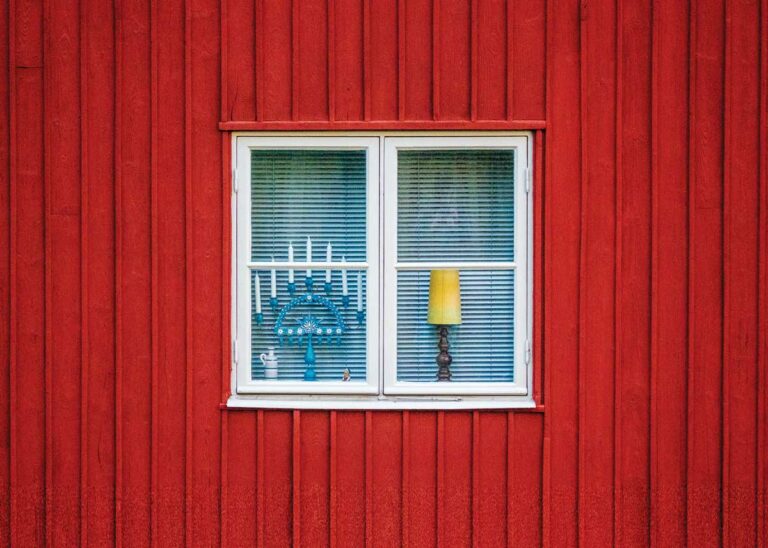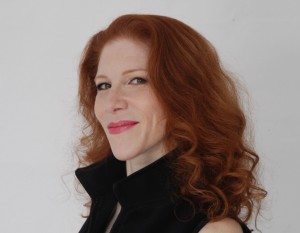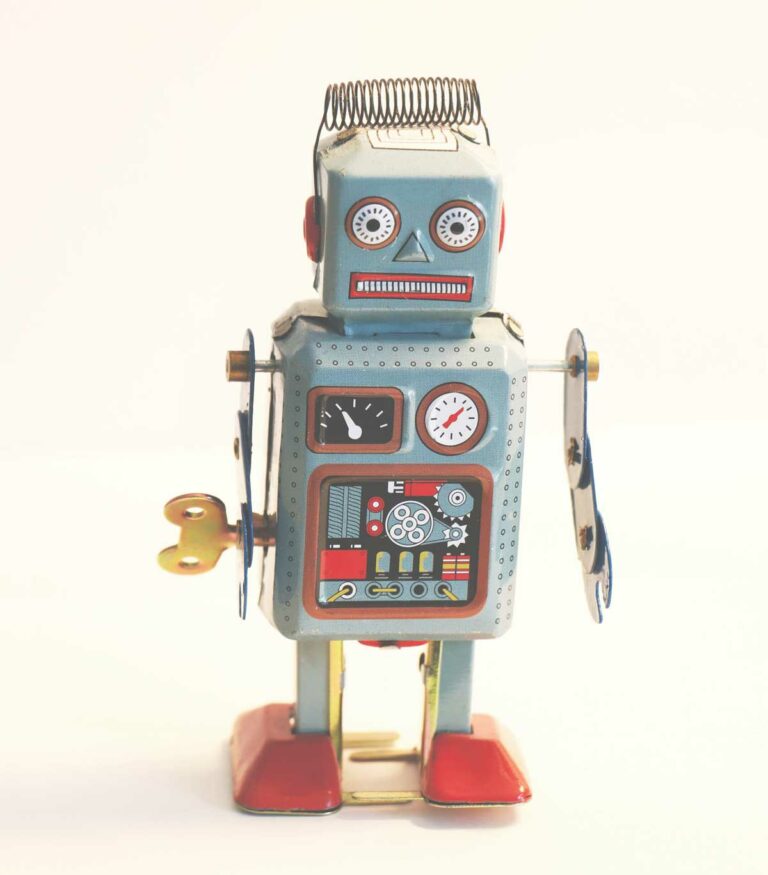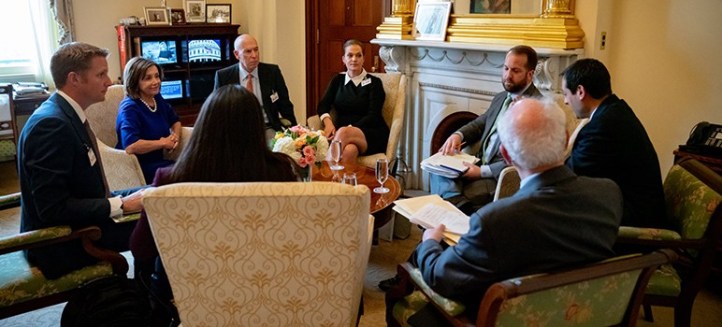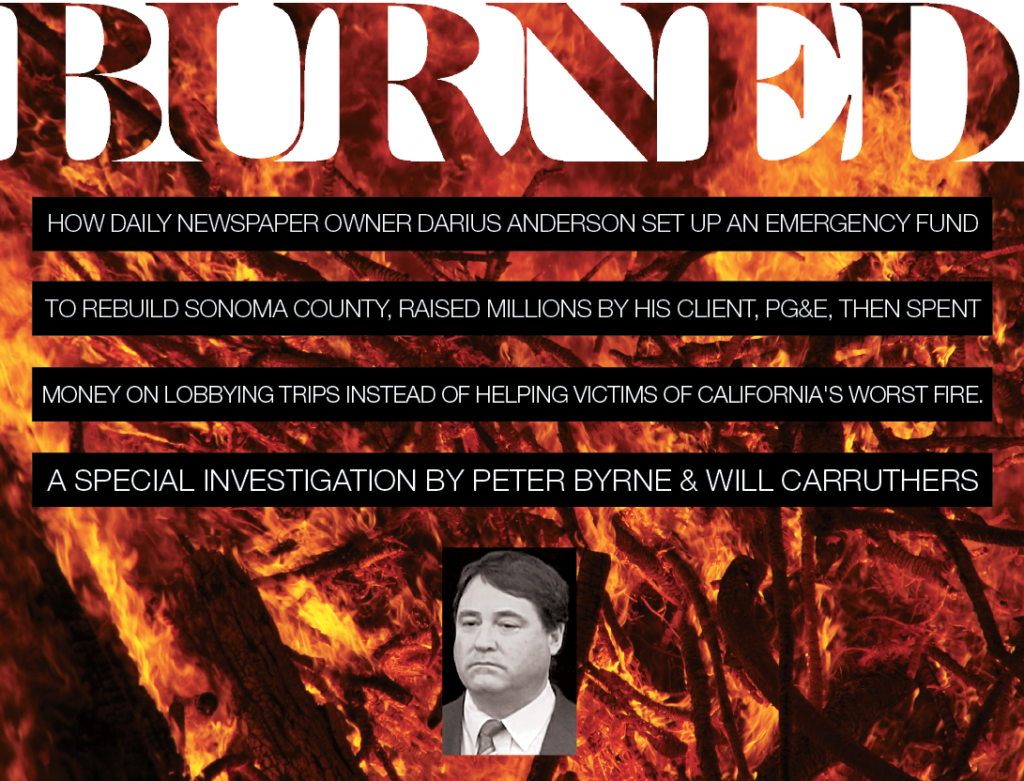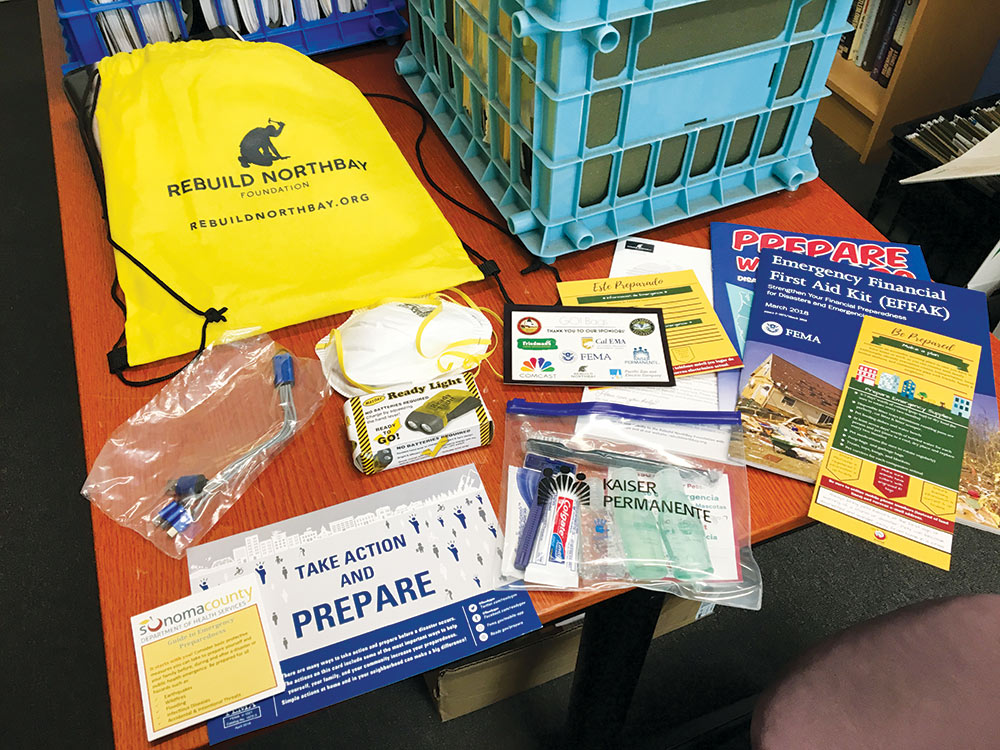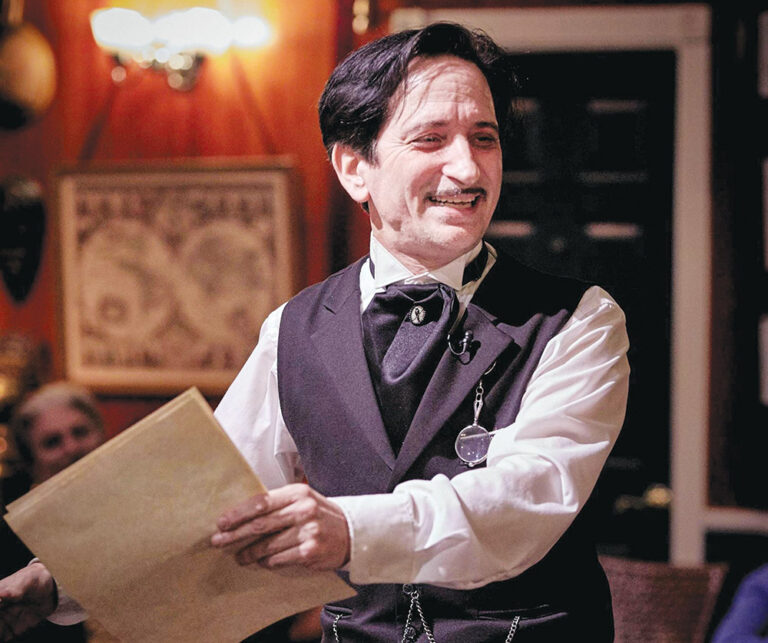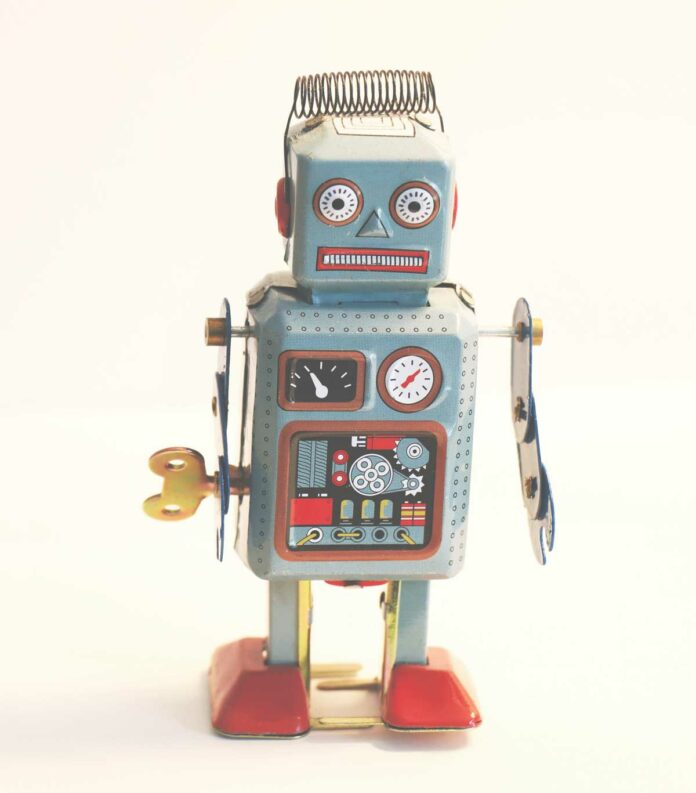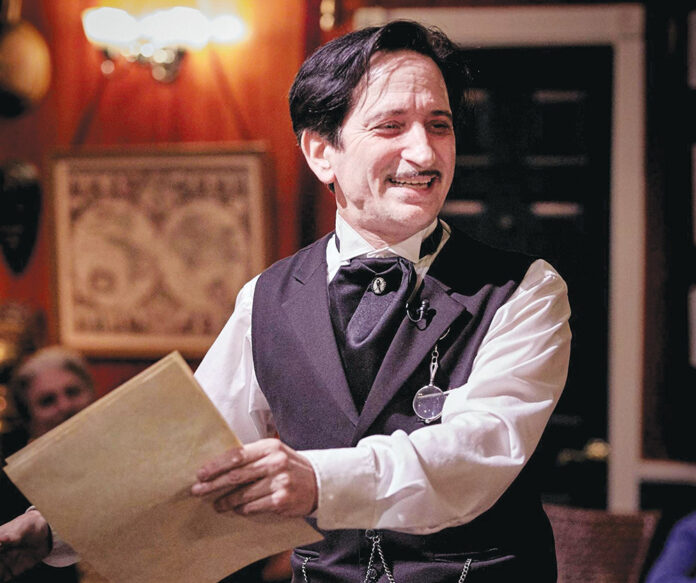An ancient flame burns during the season of lights
Rudolph the Red-Nosed Reindeer blares over the loudspeaker as I wade through a sea of Christmas trees and Frosty the Snowman figurines. A store clerk leads me to a shelf of scented cinnamon tapers, but the candles I’m looking for are for lighting my menorah, a candelabrum used by Jews for more than 2,000 years.
“Did you try the garden center?” he suggests with a shrug.
Another clerk directs me to the ethnic-foods aisle packed with matzos and gefilte fish—staple foods for Pesach (Passover), a springtime holiday. I’m ready to call it quits on my detective work when I discover an entire table of Hanukkah merchandise. Here are window decals of dreidels, cookie cutters shaped in the Star of David and plastic plug-in menorahs made in China. There’s even KosherLand, a Jewish-themed board game modeled after Candy Land, with Marching Latkes taking the place of Lord Licorice.
Tossing aside bags of gold-wrapped gelt, or chocolate coins, I hit the jackpot with boxes of blues-and-whites. The candles are half-price—but the eight-night Festival of Lights hasn’t even begun.
Every year a similar scenario unfolds. Of the 19 local stores I once surveyed, only 10 sold Hanukkah candles. Meanwhile, Santa’s surplus overwhelms shoppers as early as Halloween—a confirmation of Yuletide’s prominence during the so-called Holiday Season.
I shouldn’t be surprised by the scanty representation. According to a 2018 commissioned report by the Jewish Community Federation, the North Bay (Sonoma, Napa, and Marin counties) comprises just 13 percent of the Bay Area’s Jewish population of 350,000. Might these statistics account for the paltry acknowledgment of my faith?
Hanukkah candles, sold as commodities, certainly look pretty displayed on a windowsill—similar to the twinkling lights on an evergreen. Yet they aren’t meant to be decorative. They’re symbolic. The flames stand as emblems of religious freedom, a remembrance of an ancient uprising against oppression.
Translated from the Hebrew as “dedication,” Hanukkah commemorates a successful revolt led by Judah the Maccabee in the second century B.C.E. As the tale of triumph is told, Antiochus IV Epiphanes, the Hellenistic Greek king of the Seleucid Empire who ruled the Syrian throne, enforced brutal decrees that required Jewish worship of other deities. His armies ransacked the Second Temple in Jerusalem and stole its ritual objects, including Torah scrolls and a gold menorah. Upon repossessing and ritually cleansing the sanctuary, the Maccabees discovered what is now known as the miracle of Hanukkah: a vial of oil, enough to illuminate the eternal flame for only one day, lasted for eight.
It wasn’t the military coup or the miracle, but the candle-lighting ritual, that captivated me as a young child. I recall the warmth of my mother’s illumined face as she used the ninth “helper” candle, called a shammes, to ignite the others, then recited the blessings over them. Each night the number grew by one, until all eight shone in the darkness. Our family of four ate potato latkes cooked in oil. We played games of dreidel, gambling for gelt using the Hebrew letters on the four-sided spinning top, while the last flame flickered. The candles held the promise of returning light during the dimmest time of year.
By lighting the menorah, Jews perform a mitzvah, translated as a commandment or social obligation of communal value. The practice connects us to a Jewry of nearly 15 million worldwide. Kindling these oil lamps is a holy act.
Hanukkah, however, is not considered one of the high holy days; it holds far less religious significance than Rosh Hashanah and Yom Kippur, which mark the Jewish new year during the Days of Awe. So how was it elevated from a simple domestic ceremony to the most widely celebrated Jewish holiday?
Traditionally in Europe, parents would present tokens of money to children at Hanukkah. We added gift giving in the late 19th century, after Christmas became a federal U.S. holiday. Initially, the push to heighten Hanukkah was an effort “to resist assimilation to American culture so influenced by Christianity,” according to Dianne Ashton, a professor of religion studies at Rowan University, in her book Hanukkah in America: A History. Then, with the increase in post–World War II consumerism, Hanukkah followed suit with its embellished status: an “effective means of making [Jewish kids] immune against envy of the Christian children and their Christmas,” according to What Every Jewish Woman Should Know, a book published in 1941.
Hanukkah in the 70s
Growing up in the 1970s, my older brother and I wrapped homemade gifts for our parents—a macrame cup holder or hand-drawn coupon for a car wash. Each evening we opened a modest present until the eagerly anticipated final night, reserved for something more substantial like a baby doll or a model airplane kit.
“No fair!” a friend complained. “You get stuff for eight days and we only have one.”
While I knew that Santa did not exist, I found myself pining for what he delivered down her chimney. The pack of synthetic yarn ribbons I received, which frayed like my frizzy hair, could not compare to the Barbie Dreamhouse towering under her tree. Suddenly Hanukkah did not shine as brightly. My parents might have argued for its separate-but-equal status; but I realized, at least in material terms, that the holidays weren’t equivalent.
In 2018 Americans spent an average of $1,007 per person on food, gifts, and decorations during the Winter Holidays, notes The National Retail Federation. This year they predict that number to increase between 3.8 and 4.2 percent, with holiday sales totaling upwards of $728 billion.
Hanukkah banners, garlands, cardboard cutouts, sequin-sprinkled ornaments—even inflatables for the front lawn—have joined the party. “If you’ve been lusting over the luscious greenery in your neighbor’s Christmas decorations, consider a natural take on a Star of David for your Hanukkah display,” states an article on decor ideas in Southern Living magazine. “Our stock of oversize decorations puts the reason for the season on full display,” promises Zion Judaica, an online superstore with a mission to “make these eight special nights bigger and brighter than ever before.”
I wonder if these efforts to emulate America’s biggest consumer holiday succeed in affirming Jewish identity. Or does the attempt to rival Christmas with its commodification actually diminish Hanukkah’s significance and blur the distinction between Jews and gentiles?
Years ago I worked at a school where a first-grade teacher directed her students to write “Dear Santa” letters in class. The compulsory activity put a Jewish boy in tears. I tried to address the inappropriateness of the assignment—how it ostracized the few non-Christian students. Why enhance their sense of difference during a time of year that magnified their minority status?
“Well, Santa isn’t really Christmas,” the teacher replied, in defense of secular joy.
She didn’t understand that Old Saint Nick wasn’t in the boy’s holiday lexicon. The remedy: he could write to a relative instead! But Jewish families don’t consider whether children on their gift list are naughty or nice: there was no substitute for the man in a red suit.
That year my students gave me enough presents to fill a sleigh: CDs, soaps, coffee, cookies, lotions, chocolate, a jewelry box, gift certificates, a writing journal and bottles of wine. Plus, a sparkly ornament for my nonexistent tree.
“You don’t want to wait until Christmas to open them all?” a colleague asked.
“It’s hard being a Jew at Christmas,” one third grader explained to her classmates after sharing a picture book about a girl who asks her parents for a Hanukkah bush. Although they refuse to grant her wish, they do help her to reconcile her conflicted feelings.
I could relate. My mother, who agreed to my father’s stipulation that his children be raised Jewish, converted from Christianity after my brother was born. (“I look forward to becoming a Yiddishe Mama,” she wrote to my grandparents.) When I turned 11, my parents divorced. For the next few years, she subjected us to a clandestine Christmas. Our frenzied exchanges felt as hollow as the giant stockings she quilted, which we were now obligated to fill.
Reclaiming Hanukkah Traditions
My stepsister, who lived in an interfaith household that blended both customs, married a man who also converted. Together, they’ve raised two Jewish children in San Francisco. Each year they string dreidel-shaped lights across a mantel bedecked with blue-and-silver wrapped presents and multiple menorahs aglow. She considers these items, however, to be conciliatory. Putting less emphasis on material objects and more focus on “togetherness,” she says it’s the family time that matters.
I, too, am eager to reclaim the sanctity of those earlier traditions—without all the trappings. My brother, on the other hand, switched to Christmas just six years after his Bar Mitzvah. At least his three boys don’t have to hide their tree from their dad. I just hope they know what Hanukkah candles look like.
This year’s Hanukkah begins at nightfall on Dec. 22.
Hanukkah candles and other ritual objects are sold at these Judaica gift shops: Congregation Beth Ami (4676 Mayette Ave., Santa Rosa; 707.360.3000) and Congregation Shomrei Torah (2600 Bennett Valley Rd., Santa Rosa; 707.578.5519).

